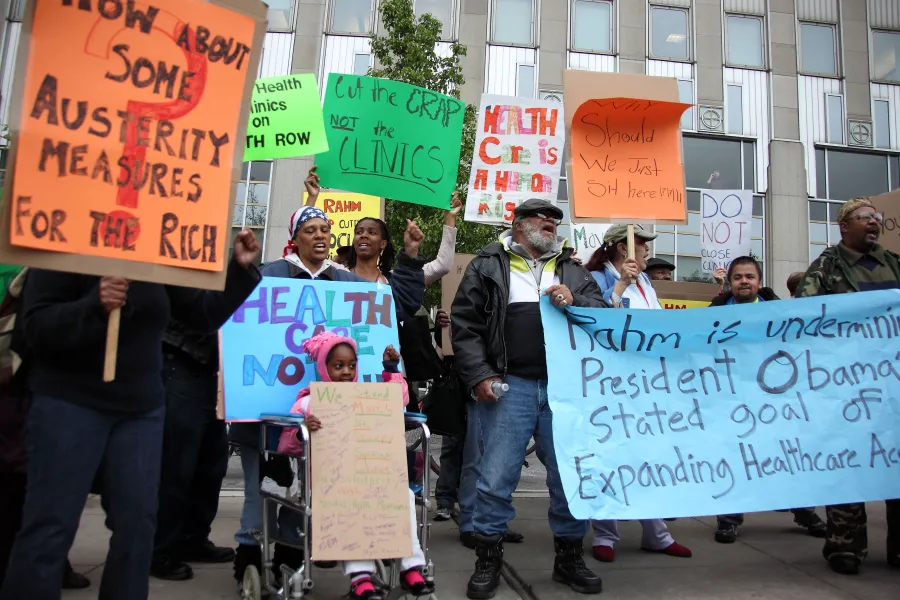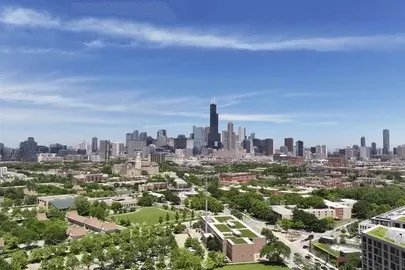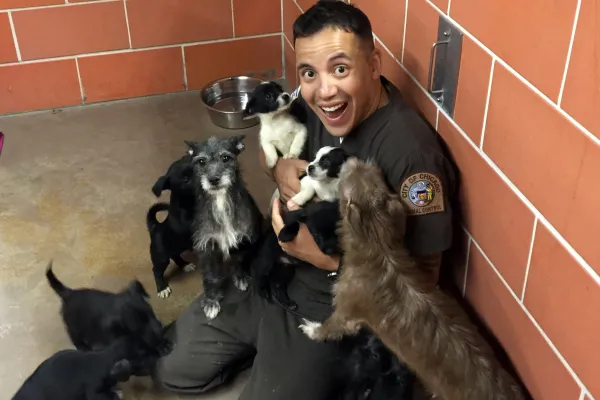After long fight, Chicago finally reopening mental health clinics

For more than a decade, AFSCME members and allies have been fighting to rebuild the network of city-run mental health clinics that were shuttered, neglected or ignored by the administrations of mayors Daley, Emanuel and Lightfoot.
Chicago Department of Public Health (CDPH) clinicians provide a wide range of therapy and support for adults, families, adolescents and children, for everything from stress, trauma and depression to psychiatric disorders. Clinic closures and layoffs shrunk the public mental health safety net, pushing the responsibility on private providers and raising barriers to access for city residents.
But now, with the support and leadership of Mayor Brandon Johnson, real progress is finally being made. Steps are being taken to staff existing clinics appropriately, groundwork is being laid for new clinics to open, and innovative pilot programs—like pairing mental health workers with first responders and offering clinical services in city libraries—are expanding.
“I’m very passionate about this. It’s bringing back life to communities that were stripped of the supportive services they need,” said Miguel Oviedo, a CDPH clinical therapist and member of AFSCME Local 505. “Especially after Rahm Emanuel’s administration, that support was taken away in many areas of the city. It was sad to see those resources being shut down. Now we’re restoring mental health to neighborhoods that need it. It’s very exciting.”
"The right side wins"
Two new clinics are slated to open this year, starting with the Lower West Side clinic in the Pilsen neighborhood in August and followed by the Roseland clinic in the coming months when its build-out is complete.
Each clinic will have six or seven therapists, four or five support staff, and a psychiatric nurse practitioner.
The Roseland site was among several clinics closed under Rahm Emanuel in 2011. CDPH clinical therapist and Local 505 member Jay Roth worked at Roseland at the time.
A Far South Side neighborhood that’s suffered from decades of disinvestment, Roseland “is a forgotten part of Chicago to those who don’t live there,” Roth said. “The clinic had a real presence. People knew through their networks that it was a place to get services in times of need. When it closed, it was heartbreaking. People had the sense that they were being abandoned.”
The long battle to reopen the Roseland clinic is hopefully just a first step, but a welcome one.
“It’s hard not to feel angry and frustrated about the powers that be who made the past bad decisions, but if people’s needs will be the priority now, that’s good,” Roth says. “It didn’t seem at the time that there was any hope for these clinics to come back. It felt futile to fight. But we didn’t give up, political tides turned, and that’s a great thing. It’s gratifying when the right side wins.”
“AFSCME never quits,” said Jo Patton, retired Council 31 special projects director, who was the key strategist in those early battles and helped to maintain the activist network through the years.
Expanding care
CDPH is also taking steps to expand and make permanent two pilot programs that provide public mental health services outside the clinic setting.
In one effort, a CDPH clinician will now be permanently posted one day each week at the Legler Library in the Garfield Park neighborhood. The pilot phase showed that reaching out to people in their communities can raise awareness of CDPH and lower barriers to access.
The other effort is a significant expansion of Crisis Assistance Response and Engagement (CARE) teams that pair CDPH mental health workers with first responders in an effort to adequately treat mental health crises and avoid disproportionate law enforcement involvement. The city is in the process of hiring 40 to 50 new staff to bolster existing CARE teams and expanding the program’s reach into new service areas.
Finally, the department has reinstated the Clinical Therapist II position it eliminated during the Emanuel years. Since the position has lesser educational and licensing requirements than the Clinical Therapist III title the department has been relying on, opening up these posts will make it easier to hire young people just starting out in the field, enabling them to gain experience, pursue certification and build a career ladder within the city clinics.
Going forward, AFSCME Council 31 staff representative Colin Theis said, “The Johnson Administration has committed to continuing to open more clinics, and our union is committed to collaborating in that effort.”


